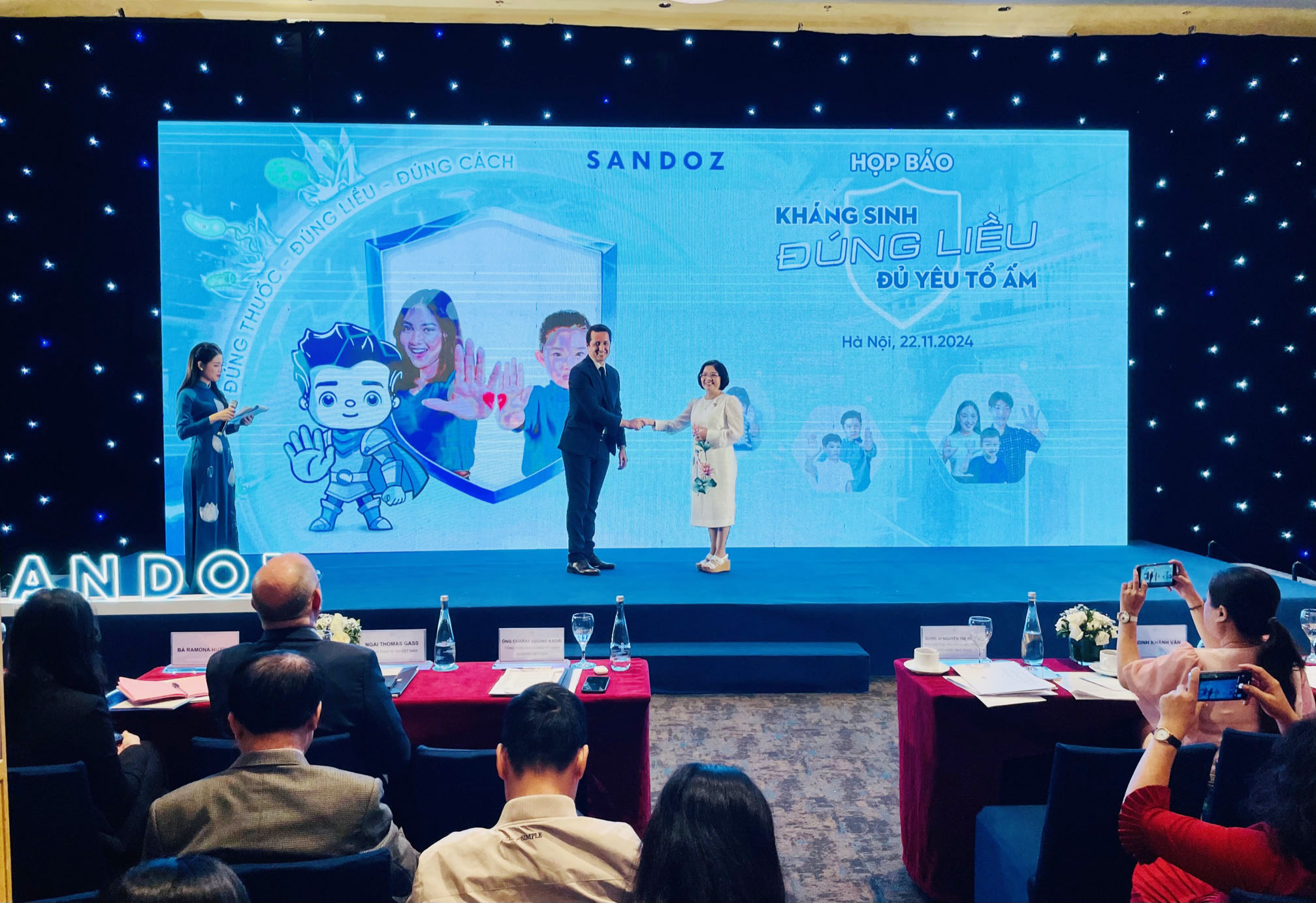Sandoz, the global leader in generic and biosimilar medicines, has launched a community programme on antimicrobial resistance (AMR) in Việt Nam.

Sandoz, the global leader in generic and biosimilar medicines, on November 22, launched a community programme on antimicrobial resistance (AMR) in Việt Nam.
The project is part of efforts to support Việt Nam's National Strategy on the Prevention of Antimicrobial Resistance for 2023-30 which aims to call on people to take action against antimicrobial resistance to protect themselves, Vietnamese society and future generations.
"Purchasing medications without prescription over-the-counter from pharmacies for conditions such as the common cold and taking these medications ultimately increases the potential patient's side effect to the treatments, rendering them less effective for diseases which they are originally meant for. This in turn triggers a spiral of having to resort to ever-stronger medications for patients - even children - for relatively simple, treatable conditions," said Charaf Eddine Kadri, General Director of Sandoz Vietnam.
According to the World Health Organization, there were 296,681 deaths in Việt Nam due to antibiotic resistance from 2020 to 2023. Việt Nam experiences a high AMR rate due to factors like the overuse and misuse of antibiotics, the sale of antimicrobials without prescriptions and improper prescribing practices.
Under the theme 'Antibiotics: Invisible Threat, Visible Love - Learn how to protect yourself and your family'(Kháng sinh đúng liều – Đủ yêu tổ ấm), the programme aims to address a serious global health threat with a significant impact in Việt Nam, affecting both public health and the nation's sustainable healthcare development.

Sandoz Vietnam's campaign will be active until December 31, 2028, with a focus on broad community engagement and education to encourage responsible antibiotic use.
"In Việt Nam, AMR poses a severe health risk, making infections harder to treat, increasing mortality rates and raising healthcare costs. AMR endangers medical advancements like surgeries and cancer treatments, impacts food security and affects the country's vital agricultural productivity.
"Economically, AMR could significantly hinder GDP growth and disproportionately impact rural and low-income communities, widening health inequalities. Additionally, environmental contamination from antibiotic residues in water sources worsens AMR, affecting both ecosystems and public health across Việt Nam,” said Charaf Eddine Kadri.
“By working with healthcare agencies and leveraging diverse outreach channels, Sandoz aims to empower Vietnamese families to contribute to a healthier future by using antibiotics responsibly and make a real impact on AMR prevention across Việt Nam."
The five-year programme will see Sandoz implement a series of large-scale educational activities in 2024. High-visibility billboards in busy locations will display videos to increase public awareness of AMR, while a newly-developed website will provide in-depth information, articles, infographics and videos that explain AMR in accessible, engaging ways.
Sandoz will closely work with the HCM City Retail Pharmacies Association and healthcare partners to promote responsible antibiotic use in Việt Nam.
Additionally, Sandoz will also collaborate with Children's Hospital 2 and National Children's Hospital during World Antimicrobial Awareness Week to offer AMR-focused informational booths, helping patients and visitors understand the importance of responsible antimicrobial use. — VNS
- Tags
- Sandoz





